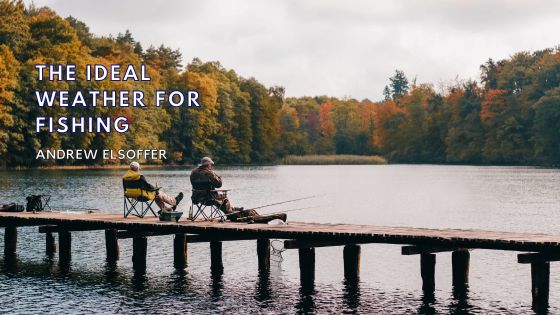Fishing is a pastime that has been deeply ingrained in our culture for millennia. For many, it’s more than just a hobby—it’s a meditative experience, a connection to nature, and a way to break free from the fast-paced rigors of modern life momentarily. However, a critical component that often dictates the success of a fishing expedition is the weather.
- Temperature:
Fish are ectothermic creatures, which means their body temperatures are dictated by the waters they inhabit. When water temperatures are optimal, fish become more active, feeding aggressively, and are more likely to bite. On the other hand, when the water is too cold or hot, fish tend to become sluggish and less inclined to bite. Fish like trout or salmon prefer cooler temperatures. For them, early spring or late fall offers the best chances of a bite. Species like bass, catfish, or bluegill prefer warmer waters. Late spring to early summer is their prime feeding time.
- Barometric Pressure:
Changes in barometric pressure, the weight of the air’s atmospheric pressure, can affect fish behavior significantly. The barometric pressure drops when storms approach. This sudden change often makes fish more active and can be an excellent time for anglers. Consistent high or low pressure means the weather has settled. Fish are relatively active during these periods, especially when the pressure is high. Post-storm conditions see a rising barometric pressure. Initially, the fish may be less active, but activity levels increase as the pressure stabilizes.
- Wind:
A moderate wind can be your ally. It stirs up smaller prey, making them easier targets for predator fish. Moreover, wind can cause a drift in your bait, making it look more natural to the fish. However, highly windy conditions can make fishing unsafe, especially in smaller vessels or onshore.
- Cloud Cover:
Overcast skies can be ideal for fishing. Clouds diffuse sunlight, making fish less wary and more likely to venture out for food. Bright, sunny days can cause fish to retreat to deeper waters or hide in the shadows, making them harder to catch.
- Rain:
Light to moderate rain can be beneficial for several reasons. It washes insects and other potential food sources into the water. The raindrops disrupt the water’s surface, making it harder for fish to discern threats from above. Overcast conditions, often accompanying rain, can encourage fish to roam freely. However, heavy rain can muddy the waters and disrupt the underwater ecosystem, making fishing more challenging.
- Moon Phases:
Though not directly related to weather, the moon’s phase can influence fish activity. Full and new moons offer brighter nights, increasing nocturnal activity among fish. This can impact their behavior during the day.

